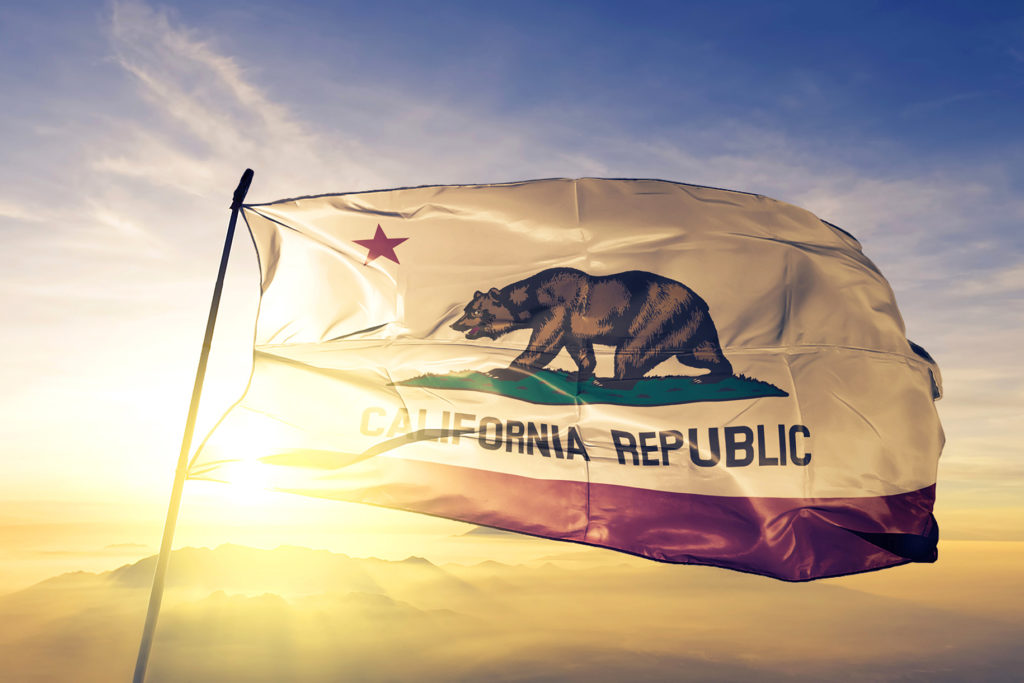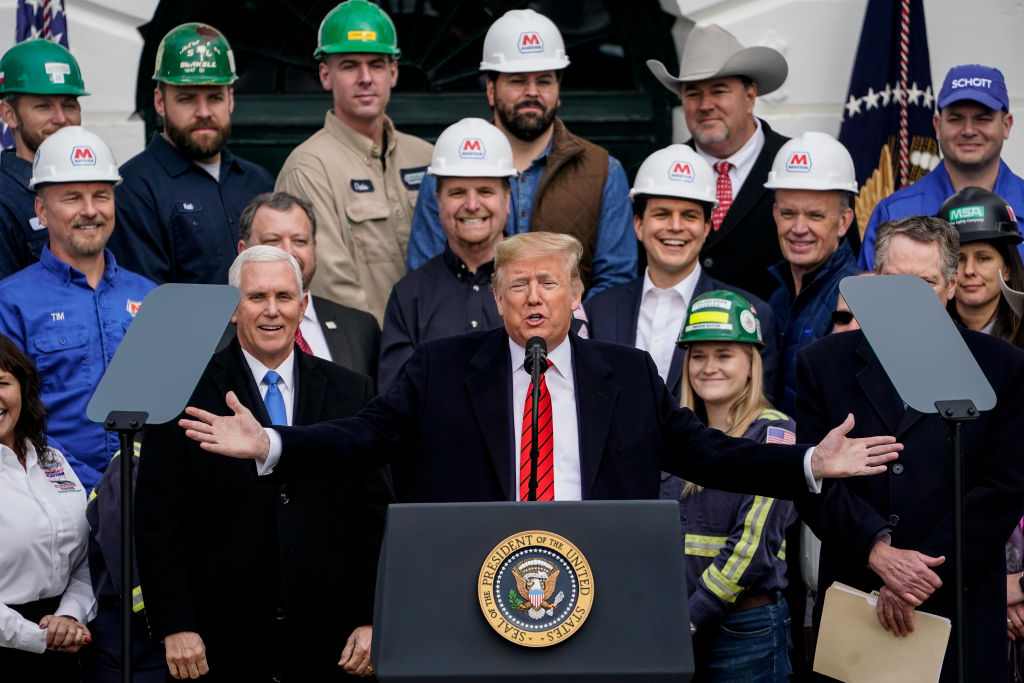We in the Golden State are delighted that the December Democratic presidential debate is to be hosted in our very own Los Angeles. We welcome the candidates – and are happy to share a few things that Californians really want you to know before you arrive.
First, we think it’s just plain weird that your rules nearly resulted in a stage with just white contenders. The nation is slated to become majority people of color by around 2044 but California actually crossed that threshold in 1998. We’re America’s future and we want the field to look more like tomorrow than yesterday.
So work on that. Maybe think about shuffling the order of which states go first, something Julián Castro (who will be forlornly looking on) has suggested. Or figure out how to jigger the rules so that being a billionaire is more of a liability than an advantage. You know – the one person, one vote rather than one dollar, one vote thing.
Second, we’re deeply concerned about income inequality. Just like we’ve been America fast forward on demographic shifts – our ethnic transformation between 1980 and 2000 mirrors the nation’s between 2000 and 2050 – we’ve been way ahead on disparity. From being in the middle of the pack in terms of income gaps in 1969, we are now the fourth most unequal state in the union.
We’re not proud of that and we’re hoping the next president can offer some answers. Improving the progressivity of our income tax system and implementing a wealth tax would help. So would raising the federal minimum wage so we don’t stand out as a high-wage island. You might even consider a “data dividend” – that is, funding a universal basic income by forcing tech companies to share the profits they make by mining the basic research we taxpayers fund and the consumer data we all provide.
Third, we are proud about another fact: that roughly one quarter of our residents are foreign-born and that approximately half of our children have at least one immigrant parent. We are also more than aware that immigrants contribute around one-third of our state’s GDP and that our economic problems worsened in the 1990s when we chose to scapegoat immigrants rather than develop strategies to counter deindustrialization.
So we’d like you to not just firmly object to the rhetoric coming from the Trump administration but offer a positive agenda for immigrant integration. In our state, nearly 70 percent of those living without papers have been in the U.S. for more than a decade – they are undocumented Californians. We need to prioritize immigration reform so they and their families can be safe and thrive.
Fourth, we are a bit chagrined to admit that we led on the over-incarceration binge. Between 1982 and 2008, the state prison population for the U.S. increased by two and a half times, but for California that number quadrupled. Driving those numbers was a toxic combination of a misguided war on drugs and a deeply embedded set of racist policing practices.
We’re ready to make amends and have already passed a ballot measure that de-felonized drug use and made it possible for the formerly incarcerated to have some felony convictions reclassified as misdemeanors. You can help by adding your own voice to criminal justice reform and also by making a commitment to promote workforce development efforts that prioritize those re-entering our communities.
Fifth, let’s talk about climate change. We believe in it – indeed, we believe in it so much that we set our own ambitious goals to reduce greenhouse gas emissions and move to 100 percent renewable energy. We were already on that course – and it’s actually had bipartisan support (well, at least, former Governor Arnold Schwarzenegger) – but the recent mix of raging wildfires and electrical blackouts has sort of sealed the deal on our conviction that this is serious business.
So get serious. Stop just talking about a Green New Deal – spell out what the goals, funding, and mechanisms will be. Make a commitment to ensure that coal miners fare well through a transition, but also to protect farmworkers from increasing heat and address the persistent health issues of fence-line communities as we roll back on refineries.
Which gets to our sixth request: talk about environmental justice. After all, study after study shows that there are disparities in terms of exposures by race and income – and that race is actually a more statistically significant and consistent predictor of disparity than class. You’ll be on the right side of the facts – climate change is real but so is the climate gap – and there are political benefits as well.
Why? Despite the usual suppositions, polling in California shows that people of color – particularly Latinos – are far more concerned about climate change than whites. You want a broader coalition for that Green New Deal? You’ll find it in the populations that have been getting a raw deal in terms of both economic and environmental opportunities
Seventh, talk about housing. Yes, we have a particularly acute problem with rent burden and high housing prices here in California, but once again we’re likely just a few steps ahead of the nation as a whole. While some of the analysis is a bit overblown, it’s clear we live in a knowledge economy where high-paid professionals cluster – and price everyone else out.
In the Bay Area, for example, if a family with two earners each making $15 an hour – a celebrated minimum wage we have yet to reach in the state – was to lose their current apartment, they would only be able to move into five percent of the region’s neighborhoods. The federal government needs to step up its investment – and not just in voucher subsidies that get sopped up by private landlords but also in new forms of public or social housing.
Eighth, lay out a vision for the “caring economy.” By this we mean the share of our population that will need ongoing support from others. After all, our ethnic shift has dramatically slowed – California’s mix of whites, African Americans, Latinos, Asian American Pacific Islanders and others will not change much in the next few decades. But guess what: we’re all getting older.
Again, jumping ahead of the country, roughly 11 percent of our population was 65 or older in 2010; by 2060, that number will rise to 26 percent. We’re going to need more flex time and family leave – and we’re going to need to train, develop and pay care workers, reversing the current pattern of low wages, inadequate protection and exploitation. One order of business: take our state’s Domestic Workers’ Bill of Rights and make it national.
Ninth, repair geographic divides. California has experienced a growing gap between our coastal and inland regions: in Fresno and Kern counties, for example, household incomes are less than half what they are in San Francisco and the Silicon Valley. That’s a problem for many reasons, including the fact that inland California – the San Joaquin Valley and the so-called Inland Empire – is home to just over a quarter of the state’s youth.
The Golden State is trying to close that gap with “Regions Rise Together,” an initiative that seeks to prioritize investment in areas so often left behind. There’s a lesson for you there. We’d love for you to support the coasts, but in a nation wracked by regional resentments, we also need you to develop your own analog to a Tennessee Valley Authority, the New Deal measure that incorporated a neglected part of America and helped to steady the tumultuous politics of that era.
Tenth, understand that change – no matter how talented you may be as a candidate – never really comes from the top. Our own state is a good example: our turn-around from the fiscal shortfalls that starved our educational system and our social safety net was largely the result of grassroots organizing that pushed our governor to support a progressive income tax.
So don’t do what Obama did in 2008 – don’t fold up the organizing tent after you collect your votes. From the Women’s March to Black Lives Matter to immigrant rights activists, America is enjoying a rebirth of social movements pushing the nation to the left. These groups can provide wind to your sails when you’re right and hold you accountable when you come up short (yup, you’ll need that as well – or, at least, we think you will).
Here’s our final request: stop being scared of big, brave, progressive ideas. The country is in a deep constitutional crisis, riven by rising inequality, and seething with racial anxiety. It’s not like we’ve been making headway with modest proposals. California has been able to push the envelope with bold initiatives on climate, immigrant rights, worker protection and so much more. The nation is waiting for you to do the same.
Dr. Manuel Pastor is a professor of sociology at the University of Southern California, where he also serves as director of the Program for Environmental and Regional Equity and the Center for the Study of Immigrant Integration. Dr. Pastor’s most recent book is State of Resistance: What California’s Dizzying Descent and Remarkable Resurgence Means for America’s Future.
Photo by: Getty Images
Copyright Capital & Main





